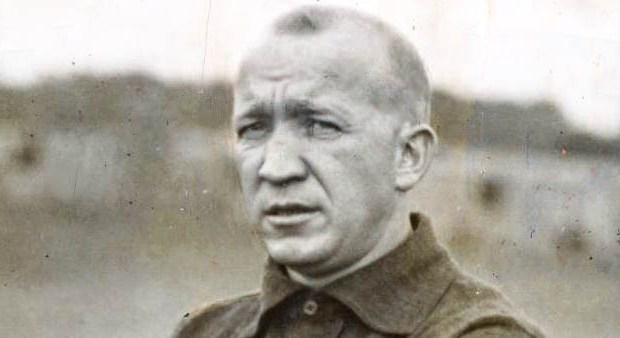Lenten Campaign 2025
This content is free of charge, as are all our articles.
Support us with a donation that is tax-deductible and enable us to continue to reach millions of readers.
Younger Americans may not recognize the name Knute Rockne, which is natural as we are nearly a century removed from his time. His contribution to the sport of American football, however, is kept alive in the College Football Hall of Fame, where he is still regarded as “without question, football’s most-renowned coach.” This is no mean feat in a sport which barely resembles what it was in the 1930s.
For 13 years he was the head coach at Notre Dame, where he led the Fighting Irish through 105 wins and just 12 losses. In that time he guided the team through three championship runs, winning the Rose Bowl of 1925. As a coach he was known as the “maker of men,” a nickname which described the way he treated his boys. He approached them with a level of respect which affected the whole team and in turn, they changed him.
In an essay titled, “Crossing The Goal Line,” reproduced by Catholicism.org, Rockne describes the circumstances around his conversion to the Catholic Church. It all began when he decided to join the team at Mass.
I realized that it appeared more or less incongruous when we arrived in town for a game, for the general public to see my boys rushing off to church as soon as they got off the train, while their coach rode to the hotel and took his ease. So for the sake of appearance, if nothing else, I made it a point to go to church with the boys on the morning of the game.
The team had traveled to the East for a football game and the coach was restless the night before, worried about their chances on the field. Around 5 in the morning he realized he was not going to get any sleep, so he dressed and headed for the lobby, where he sat and waited for his team to come downstairs, figuring he would have a few hours to himself. A little before 6 a.m., however, he began to notice his team hurredly leaving the hotel in groups and pairs.
He knew that his Notre Dame team was religious and attended Mass regularly. Be it from divine inspiration of the Holy Spirit or just good old-fashioned team-spirit, he stopped the last group he saw and asked if he could join them. After a brisk walk to the church, Rockne found himself to be profoundly touched by his team’s faith. He wrote:
Although they probably did not realize it, these youngsters were making a powerful impression on me with their piety and devotion, and when I saw all of them walking to the Communion rail to receive, and realized the several hours of sleep they had sacrificed in order to do this, I understood for the first time what a powerful ally their religion was to those boys in their work on the football field. Then it was that I really began to see the light; to know what was missing in my life, and later on I had the great pleasure of joining my boys at the Communion rail.
Rockne found peace and a deeper camaraderie with his team in his newfound faith. Unfortunately, just a few years after he wrote this essay, his life was cut short in a plane crash. The plane he was traveling in flew into a storm and became covered in ice, before falling into a wheat field in Bazaar, Kansas.
Eyewitness accounts reported no explosion, just a loud crash and one farmer described five people chucked off the plane “just like rag dolls.” When Rockne’s body was identified, the coroner discovered a rosary still clutched in his hand.
There have been many great coaches in college football since Rockne’s day, but few lists are willing to oust the “All-American” from his spot at the top. The football stadium at Notre Dame was constructed, in large part, based on design suggestion from the head coach and it is still referred to as “The House that Rockne Built.” A $600,000 Rockne Memorial field house was opened in his honor in 1939.

